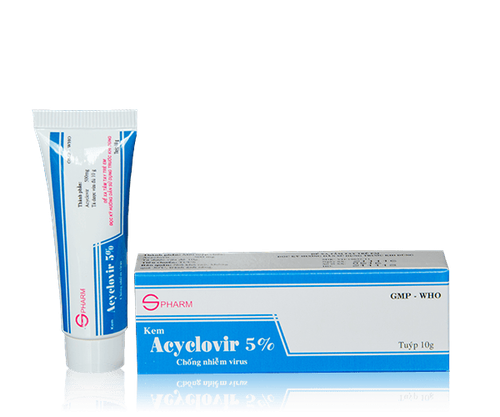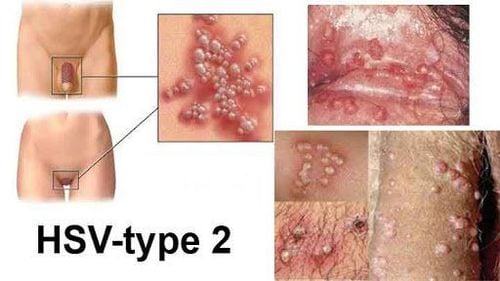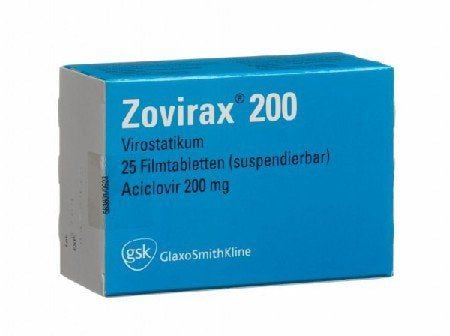This is an automatically translated article.
Bosviral medicine is indicated in the treatment of genital herpes infections with onset and recurrence, treatment of chickenpox and herpes zoster infections (shingles),...Let's find out the necessary information about the use of Bosviral. through the article below.
1. Uses of Bosviral
Indications
Treatment of herpes simplex infections of the skin and mucous membranes including primary and recurrent genital herpes infections. Prevention of herpes simplex recurrence in immunocompetent patients. Prevention of herpes simplex infection in immunocompromised patients. Treatment of chickenpox (varicella). Herpes zoster infection (shingles).
2. Dosage - How to use
Dosage for adults:
Treatment of early-onset herpes simplex, including genital herpes: 200 mg x 5 times/day (usually every 4 hours upon awakening) for about 5 to 10 days. Severely immunocompromised or malabsorption patients: 400 mg x 5 times/day for approximately 5 days. Prevention of recurrence of herpes simplex in immunocompetent patients: 800 mg divided into 2 to 4 times daily. A dose reduction of 400 to 600 mg/day may be tried. Doses higher than 1 gram/day may be used. Therapy should be discontinued every 6 to 12 months for reevaluation. Prophylaxis of herpes simplex in immunocompromised patients: 200 to 400 mg 4 times/day. Chronic disease preventive treatment: Not suitable for mild herpes simplex infections or infrequent recurrences. In these cases, treatment of each stage of recurrence is more effective; Use a dose of 200 mg x 5 times / day for 5 days, preferably during the onset of symptoms. Chickenpox: 800 mg x 4 or 5 times/day for about 5 to 7 days. Herpes zoster: 800mg x 5 times/day for about 7 to 10 days. Pediatric dose:
Treatment of herpes simplex infections and prevention of herpes simplex infections in immunocompromised patients:
Children over 2 years of age: same as adult dose. Children under 2 years: half the adult dose. Treatment of chickenpox:
Children over 2 years old: 20 mg/kg, up to 800 mg x 4 times/day for 5 days. Children > 6 years old: 800mg x 4 times/day. Children from 2 to 5 years old: 400mg x 4 times/day. Children under 2 years old: 200mg x 4 times/day. Dosage in renal impairment:
The dose of acyclovir should be reduced in patients with renal impairment according to creatinine clearance (CC).
CC < 10 ml/min: + Herpes simplex infection: 200 mg every 12 hours.
+ Varicella-zoster infection: 800 mg every 12 hours.
CC about 10 and 25 ml/min: + Varicella-zoster infection: 800 mg x 3 times/day every 8 hours.
Overdose
Symptoms : Acyclovir is partially absorbed from the gastrointestinal tract. Patients who overdosed up to 20 grams of acyclovir in a single dose, usually without toxicity. Occasionally, repeated multi-day overdose has been associated with gastrointestinal effects (such as nausea and vomiting) and neurological effects (headache and dysfunction).
Treatment : Patients should be closely monitored for signs of poisoning. Hemodialysis significantly removes acyclovir from the blood and can therefore treat symptoms of overdose.
3. Side effects of the drug Bosviral
Renal failure may be associated with the use of acyclovir in some patients; This effect is usually reversible and has been reported in response to hydration and/or dose reduction or discontinuation, but may progress to acute renal failure.
Common side effects following systemic administration include increased serum bilirubin and liver enzymes, hematologic changes, skin rash (including polycythemia vera, Stevens-Johnson syndrome, and toxic skin necrosis). , fever, headache, dizziness and digestive effects such as nausea, vomiting and diarrhea. Hypersensitivity has been reported. Hepatitis and jaundice have rarely been reported.
4. Notes when using Bosviral
Contraindications:
Patients with hypersensitivity to acyclovir and valacyclovir.
Note:
Acyclovir is eliminated by the kidneys, so the dose must be adjusted in patients with renal impairment. Elderly patients are more likely to have impaired renal function and therefore need an adjustment in the dose for this group of patients. Both elderly patients and patients with renal impairment are at increased risk of neurotoxic side effects and should be carefully monitored for adverse events. These reactions were generally reversible upon discontinuation of treatment.
Pregnancy and breast-feeding:
There are no adequate and well-controlled studies in pregnant women. Acyclovir should be used during pregnancy when the potential benefit outweighs the risk to the fetus.
Acyclovir should be used with caution in nursing women and only when indicated.
Effects on ability to drive and use machines : The effects of acyclovir on the ability to drive and use machines have not been studied.
Storage
Store in a cool, dry place, away from direct light, below 30 degrees Celsius. Keep out of reach of children.
Please dial HOTLINE for more information or register for an appointment HERE. Download MyVinmec app to make appointments faster and to manage your bookings easily.













